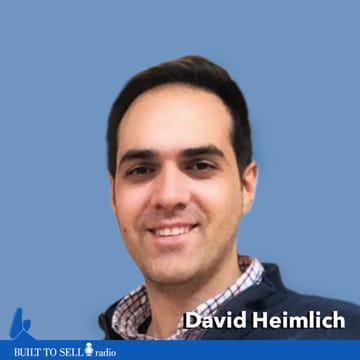About this episode
After falling ill, Nation Leagues owner, David Heimlich, needed to sell his business – but to his surprise, it was worthless. He learned the hard way why you can’t be the center of the business.
To read a transcript of this episode, click here.
In 2007, David Heimlich started a recreational sports league for adults, Nation Leagues, with nothing more than a $60 loan from his father.
After 11 years, he fell ill and needed to sell – but his hard work over the years amounted to a business of no value. Why? Heimlich ran every aspect of the business (from marketing, registration, and even refereeing the games). Without him, Nation Leagues was worthless.
Heimlich had one choice: transform the business into one that could thrive without him. Find out how he did it.
In this episode, you’ll learn:
- Why lessons from the sale of a local sports league can apply to businesses of any size
- How Heimlich made Nation Leagues less dependent on him
- The role pricing played on Nation League’s growth
- Why a failed sale turned into incredible growth
David Heimlich invested so much of his time into Nations Leagues that he forgot to separate himself from the business – a costly mistake that would result in a business of no value. In order to course correct and successfully sell, he had to find ways to make the business less dependent on him. This is the same concept learned during Module 7 of The Value Builder System™: The Hub & Spoke. How dependent is your business on you? Could you ever step away and ensure operations would run smoothly? Find out now by completing Module 1.
Check out our article on 3 Ways An Acquirer Evaluates Owner Dependency.

About Our Guest
David started his business at 21 years of age straight out of college. His company focused on the organization of recreational sports leagues and events catered to adults. As president, David grew his operation to service 7 different sport categories and roughly 3000 memberships until his successful exit in 2017. As a dedicated lifelong learner, since the sale of his business David has applied his experience in management to acquire his PMP (Project Management professional) designation.


